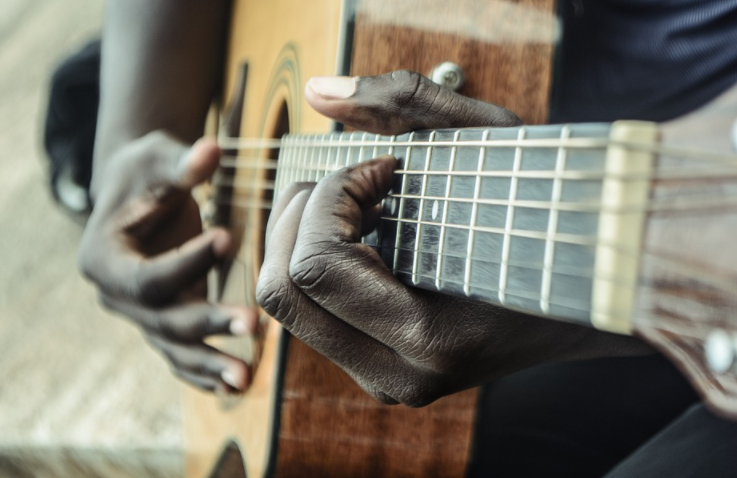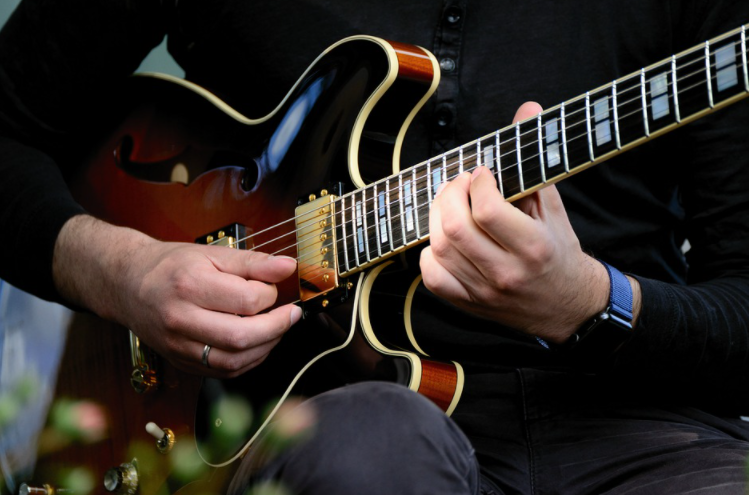
It seems impossible to come to a local guitar lesson class during this pandemic. Hence, it would help if you learned how to improve your skills in playing guitar by yourself at an article in The Fox Magazine. A strong ethic, desire, and drive to become a better guitar player are essential to have. Chances are you’re working hard to become an accomplished guitarist, regardless of your procedures. But if you use your time wisely, you can see more progress if you devote 15 minutes a day to carefully thought-out training. Here are some simple yet practical tips to improve your skills on playing guitar.

Practice a Lot
Don’t just practice; practice a lot! It’s not enough to just pick up a guitar and start strumming, perhaps to enjoy a song, or to lazily strum a few tunes while watching TV. It would be best if you focused on your playing. The important thing here is that if you’re leaning towards a particular song or getting that kind of ease that allows you to take action and not think about it, then that’s great. But once you get there, you’re not going to get anything for doing it. If you can play with a particular scale, focus on playing it faster or more accurately, or try a second scale.
Learn to Master Something
 You should set a goal to make yourself a master of a guitar-playing technique. While you shouldn’t spend all of your practice time on one particular thing at the expense of the rest of your points, it’s great if you can focus on something. It could be a difficult solo, a new scale, a difficult chord progression, a specific type of pick, or anything else that doesn’t come easy to you yet. It would be best to focus on your strategy and precision when trying to figure something out on your guitar. A little variety can help you come back to the task refreshed and much more focused.
You should set a goal to make yourself a master of a guitar-playing technique. While you shouldn’t spend all of your practice time on one particular thing at the expense of the rest of your points, it’s great if you can focus on something. It could be a difficult solo, a new scale, a difficult chord progression, a specific type of pick, or anything else that doesn’t come easy to you yet. It would be best to focus on your strategy and precision when trying to figure something out on your guitar. A little variety can help you come back to the task refreshed and much more focused.
Learn Something New
It would be best if you also created an original routine for yourself. If you find yourself playing the same number of songs differently over and over again, add something new to your list. If you know many songs, but they’re all from the same specific genre, try something from a different genre. You need to master it when you need to. There’s no point in struggling and perfecting a song that you probably won’t perform once you find it.
Practicing to Scale Up
If you think that scales may not be your cup of tea, it’s better if you do them anyway. It’s easy for some musicians – especially rhythm guitarists – to dismiss scales as something that only matters to lead guitarists, who spend their time “shredding” at center stage. Practicing to scale up will make your fretting hand more fluent, leading you to a master greater range of chords. Beyond that, you shouldn’t underestimate how much more satisfying it is to play guitar when you’re so technically proficient. It’s that you really feel like you can’t avoid a note, and having an agile, strong hand on the frets will also give you the confidence to feel that way. Scaling up your fingers may sound the same as taking your fingers to the gym.
Learn the Changes of the Chord
It would be best if you learned the chord changes because no one likes a missing “A” on their “em”. Being able to change chords with ease is crucial for any competent guitarist. On the other hand, the time aspect of chord changes is often misunderstood. Figuring out how to fix your hand with chord changes is one of the hardest things to do if it doesn’t come naturally. However, the moment you get it right, it can make a huge difference in your playing. Be sure to try various chord combinations. Ignore how melodic your playing sounds in this particular exercise; we’re not talking about chord progressions worth listening to.
